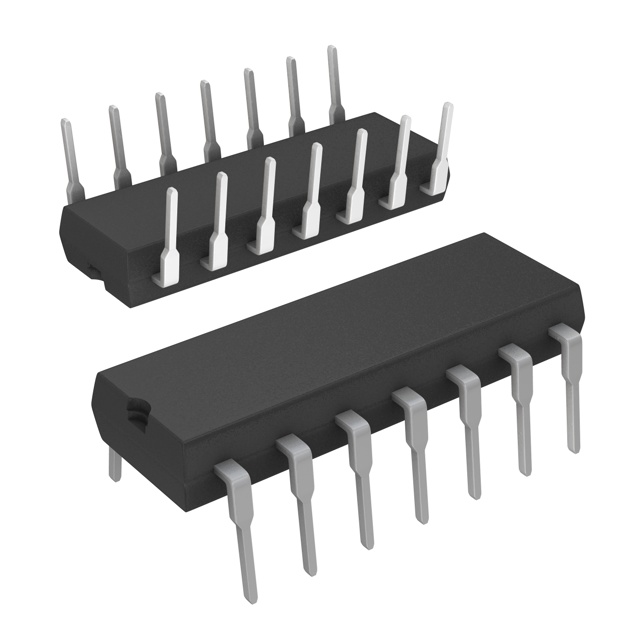74V2T14STR
Manufacturer No:
74V2T14STR
Manufacturer:
Description:
IC INVERTER 3CH 3-INP SOT23-8
Datasheet:
Delivery:





Payment:




In Stock : 0
Please send RFQ , we will respond immediately.









74V2T14STR Specifications
-
TypeParameter
-
Package / CaseSOT-23-8
-
Supplier Device PackageSOT-23-8
-
Mounting TypeSurface Mount
-
Operating Temperature-55°C ~ 125°C
-
Max Propagation Delay @ V, Max CL8.5ns @ 5V, 50pF
-
Input Logic Level - High2V
-
Input Logic Level - Low0.5V ~ 0.6V
-
Current - Output High, Low8mA, 8mA
-
Current - Quiescent (Max)1 µA
-
Voltage - Supply4.5V ~ 5.5V
-
FeaturesSchmitt Trigger
-
Number of Inputs3
-
Number of Circuits3
-
Logic TypeInverter
-
PackagingTape & Reel (TR)
-
Product StatusObsolete
-
Series74V
The 74V2T14STR is a Hex Schmitt-Trigger Inverter IC chip. Here are some advantages and application scenarios of this chip:Advantages: 1. Integration: The chip combines six Schmitt-trigger inverters in a single package, providing a compact solution for various applications. 2. Schmitt-trigger input: It incorporates Schmitt-trigger inputs, which make it tolerant to noisy and slow-changing input signals, providing a more stable output. 3. Wide operating voltage range: It can operate over a wide voltage range (from 2 V to 5.5 V), making it suitable for different voltage levels and power supply configurations. 4. High-speed operation: It supports high-speed data transmission and switching due to its optimized design and low propagation delay. 5. Low power consumption: It is designed to minimize power consumption, making it suitable for applications that require energy efficiency.Application scenarios: 1. Signal conditioning: The Schmitt-trigger characteristic of the chip makes it useful for processing analog signals with noise reduction and regeneration. It can be applied in various signal conditioning circuits like amplitude detection, waveform shaping, and filtering. 2. Buffering and data inversion: The inverters can be used to buffer and invert digital signals to match different voltage levels or to interface between incompatible logic families. 3. Oscillators and clock generation: By utilizing the feedback feature of the inverter, the chip can be used to construct relaxation oscillators and clock generator circuits. 4. Logic level conversion: It can be used to convert logic levels between different voltage standards, enabling communication and compatibility between devices with varying voltage requirements. 5. Power management: The chip can also be used in power management circuits for tasks like voltage level monitoring, power sequencing, and reset generation.It is important to note that these are just general advantages and application scenarios. The specific implementation may vary depending on the circuit design and requirements.
74V2T14STR Relevant information







